Our Process
How Do Your Legs Feel & Look Right Now?
Let’s start eliminating the pain & embarrassment of your legs by following our 3-step process below.

STEP 1: Consultation
That care will come from our primary provider Dr. Rosen and his team of experts, which includes an ultrasonographer on the first visit.
STEP 2: Ultrasound
Our clinic performs in-house ultrasound and diagnostics to minimize your wait time. You will receive prompt results from our primary provider Dr. Rosen and his staff.
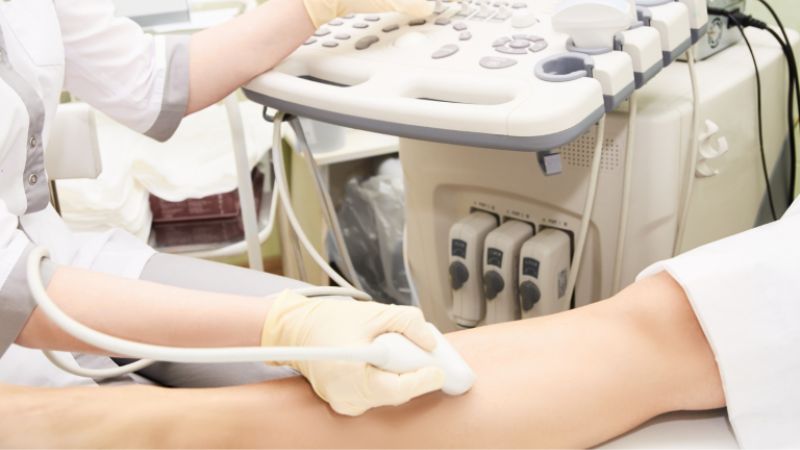
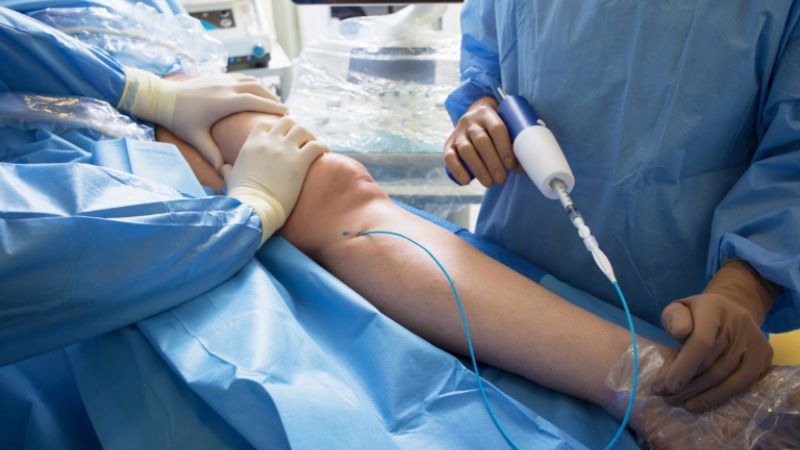
STEP 3: Treatment Plan
We offer various options, including Endovenous Laser Ablation, radiofrequency ablation, VeinGogh, sclerotherapy, and more.
Our team will work with you to design a personalized treatment that meets your unique needs and goals. Start saying goodbye to leg problems!
Our Treatments
Endovenous Laser Treatment (EVLT)
Endovenous Laser Ablation, also known as EVLT, effectively removes varicose veins using a specific laser wavelength, typically 1470nm, to seal off damaged segments of varicose veins, guided by ultrasound imaging.
Candidates are evaluated based on symptoms and medical history, with the procedure lasting about an hour and involving minimal discomfort. Patients can typically resume normal activities immediately afterward, with compression stockings provided for optimal recovery. Regular exercise is encouraged post-treatment for improved outcomes and vein health maintenance.
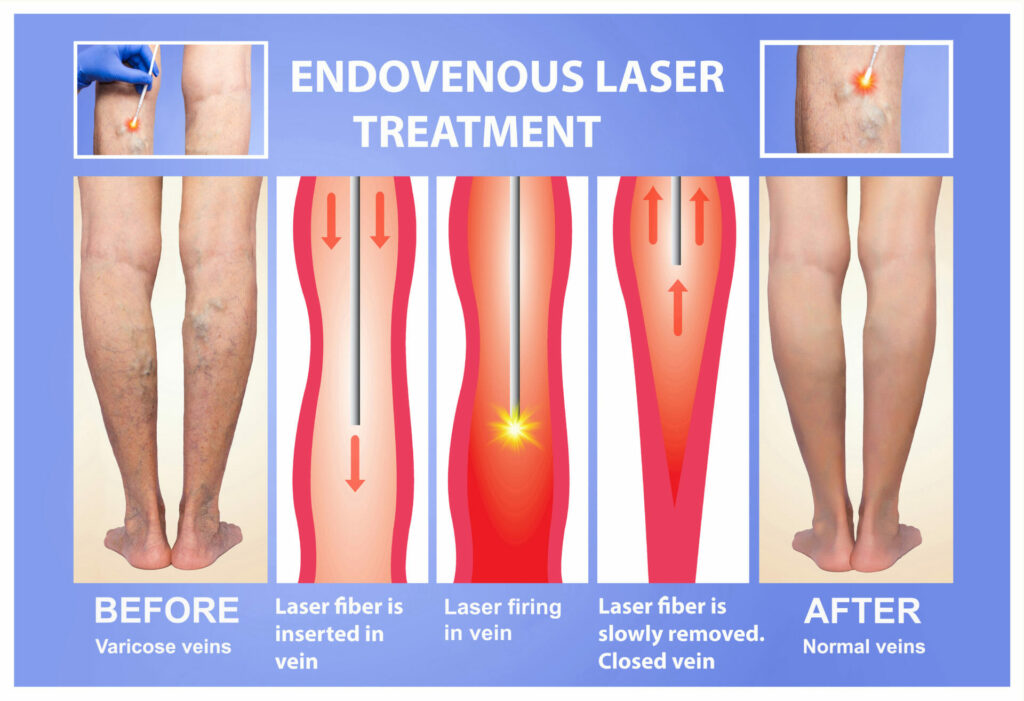
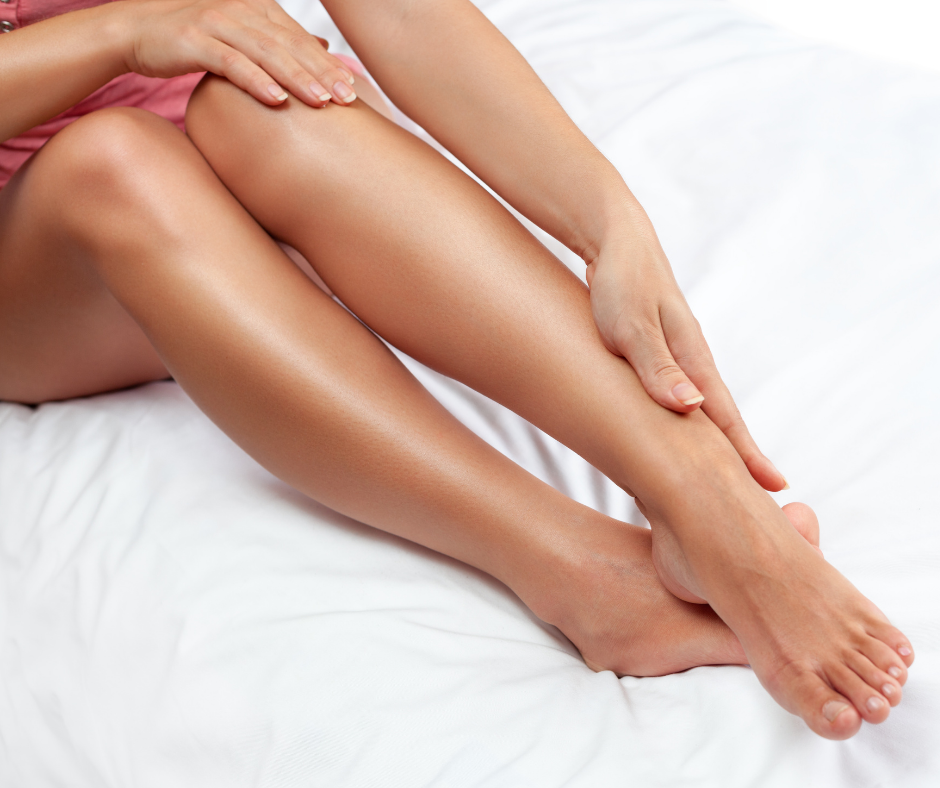
Sclerotherapy
Sclerotherapy effectively treats small varicose and spider veins by injecting a safe chemical to close and eliminate them, improving skin appearance and alleviating symptoms like swelling and pain. Administered by Dr. Rosen, the procedure involves injecting sodium tetradecyl sulfate (STS) via a small needle.
Candidates are carefully evaluated, with alternatives like surface sclerotherapy considered for specific cases. Dr. Rosen emphasizes patient autonomy and provides comprehensive information for informed decision-making.
Minimal discomfort is expected post-procedure, with compression stockings provided for recovery, and regular exercise is encouraged for optimal outcomes.
VeinGogh
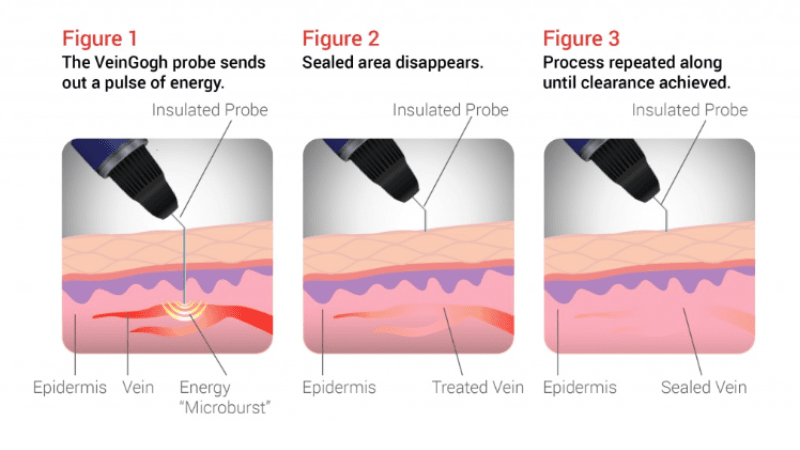
Radiofrequency ablation (RFA)
Radiofrequency ablation (RFA) is a minimally invasive procedure for eliminating varicose veins and venous insufficiency. Dr. Rosen guides a catheter into the targeted vein using ultrasound imaging and applies radiofrequency energy to collapse the vein walls, which then transforms into scar tissue and are absorbed by the body.
The procedure requires no stitches, with only a bandage applied afterward. Recovery involves wearing compression stockings briefly and avoiding strenuous activities.
Surface Sclerotherapy
Surface sclerotherapy is a safe and minimally invasive procedure that effectively removes spider veins and reticular veins without surgery.
Dr. Rosen injects a specialized medication into the problem veins, causing them to close up and eventually be reabsorbed by the body, leading to their disappearance.
The procedure, lasting about 30 minutes, offers quick recovery with minimal downtime and may involve mild side effects like bruising or swelling, typically resolving within days or weeks.

FAQs
How Does It Work?
What does Endovenous Laser Therapy (EVLT) treat?
Venous reflux disease – which leads to Leg or ankle swelling, Leg Pain and Aching, Leg Cramps, Restless leg, Leg heaviness or fatigue, Burning or Itching skin, Skin Changes or Rash
Venous reflux disease is a progressive medical condition that if left untreated, will likely worsen over time and develop into a more serious form of venous disease called chronic venous insufficiency (CVI). CVI leads to more serious outcomes such as poor healing wounds, permanent skin damage, and an increased risk of deep blood clot.
What is the benefit of Endovenous Laser Therapy?
- The procedure takes about 20-40 minutes.
- The procedure is almost always a permanent fix for the diseased veins being treated.
- The number of treatments needed depends on the severity and number of veins that are diseased.
What is the benefit of Radiofrequency Ablation?
- Patients get relief/improvement of symptoms after 2 days
- This is a permanent fix to diseased refluxing veins in the legs
- Proven long term results with positive patient outcomes and experience
- Rapid recovery with patients resuming normal activities within a few days
- The procedure takes about 20-40 minutes in most cases.
- The procedure is good at closing down small varicose veins and spider veins.
- Most people will need 1-2 treatments with compounded sclerotherapy depending on the severity and number of their varicose veins.
- Resolution of the varicose veins treated.
- Proven track record with years of solid research behind it
- Improvement/resolution of unwanted pain, aching, pressure, swelling, and other associated symptoms.
- Improved cosmetic appearance of varicose and spider veins.
